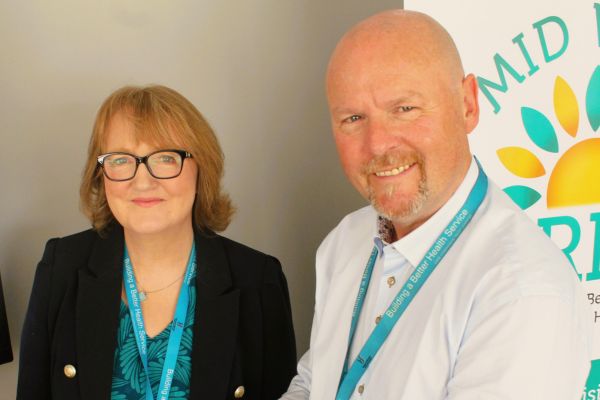Introducing Occupational Therapy for Mental Health Recovery

New resource highlights benefits of Occupational Therapy in mental health recovery
Free online guide a ‘great enabler’ for people in mental health recovery and their families
Tuesday November 12, 2024 ¦ A NEW free online resource is highlighting the numerous benefits of occupational therapy for people working to improve their mental health and wellbeing through a focus on the everyday activities that bring meaning and purpose to life.
‘Introducing Occupational Therapy for Mental Health Recovery’ is an informative, interactive guide devised collaboratively by Mid West ARIES and the HSE Mid West Mental Health Occupational Therapy Service. The guide is the latest in an expanding series of innovative educational resources provided by Mid West ARIES to support recovery and mental health.
The new guide is the first of its kind in the country, deftly deploying a range of IT tools to raise awareness of how Occupational Therapy works, including video testimonials, interactive quizzes and live online links to community-based support services, all easily accessible on a laptop, PC or smartphone.
All you need is internet access. This guide is free and available here(rise.articulate.com).
“This is a unique online education resource,” stated Mike O’Neill, manager, Mid West ARIES. “It fulfils all aspects of our mission to identify gaps in people’s knowledge of mental health services and supports, and delivering innovative solutions that tangibly make a difference to people’s lives, not least by enhancing access, as conveniently as possible, to the support they need.”
Mike’s colleague at Mid-West ARIES, Margaret Keane, the agency’s Education, Training & Development Officer, explained: “Occupational Therapy can play an enormously positive role in people’s mental health recovery. But many people are unaware of precisely how Occupational Therapy works. Further challenging our awareness-raising mission is the current era of rapid, instantaneous sharing of unverified opinions, misinformation and disinformation. Such a swirl of myths and misconceptions can often act as barriers to people seeking help.”
The ‘Myth Busting’ section of the resource, engagingly gamifies the educational process through a simple True/False quiz, that shows the user, for example, that Occupational Therapy is not ‘talk therapy’ or counselling, but a practical therapy focused on the activities a person does in their everyday lives; or that it is not what you seek when you are sick at work (that’s Occupational Health). Incorrect responses to the questions prompt you to have another go, before delivering the correct answer.
Video is also used to show people how Occupational Therapy works from the perspective of the service-user and the practitioner. Áine Frawley, Occupational Therapist at St Anne's Community Mental Health Centre, Roxboro Road, Limerick, explains the role of Occupational Therapy in mental health recovery.
Service-user Mary O’Carroll discusses how the therapy helped her to achieve significant weight-loss goals, effectively manage her tendency towards hoarding, and transform her social life to play a more active role in her community.
“I want to give hope to those people who are struggling at the moment—with the right supports, recovery is possible,” Mary says.
Eithne Kennedy, Occupational Therapist Manager, Limerick and North Tipperary Adult Mental Health Service, described the guide as “a great enabler” for anyone attending mental health services, and for their families and loved ones: “By understanding what a profession can offer, people are empowered to request the kind of input they think will be of benefit. Many people who have informally fed back on our services have said that if they’d known previously what Occupational Therapy was, they would have requested it much earlier in their recovery. I’m delighted that this modern resource is so readily available and accessible. I hope that by using the guide, service users, families and staff can all learn more about the role of Occupational Therapy in mental health recovery.”
The resource is just the latest of the ARIES range of inclusive and transformative recovery education resources available online and in the community throughout the Mid West, covering topics such as anxiety, creativity for wellbeing, self-care and resilience. “All Mid West ARIES workshops are co-produced, by people with mental health challenges, their families, carers and supports, mental health staff and community partners,” he said.
Co-production grows out of Mid West ARIES’ collaborative ethos, creating an edge to their resources in which everyone’s contribution – whether service-users and their family members, and service-providers – is equally valued, making for powerful, meaningful and relevant learning outcomes.
For immediate information on additional supports, the Occupational Therapy guide also shares links to a wide range of community-based partner organisations, including EmployAbility, Grow, Jigsaw, Limerick Mental Health Association, Limerick Youth Service, and the National Learning Network.
If you are recovering from mental health challenges and want to find out more about how Occupational Therapy, the answer may be just a tap of the smartphone away, at this link(rise.articulate.com).

